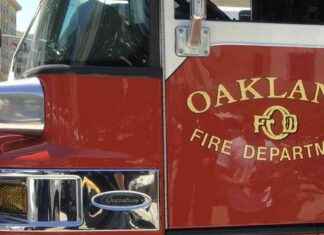All call takers and dispatchers in the city’s 911 police operations center have completed mental health awareness and de-escalation training as the department works to improve the way it responds to crisis situations.
Training for the frontline civilian employees included how to best communicate with callers who may be having a mental health crisis, techniques to calm a situation before officers arrive and how to recognize situations that may need a response from officers specially trained in crisis intervention.
All 911 center employees, 488 total including supervisors, completed an eight-hour training course, including information from the National Alliance on Mental Illness Chicago.
"Since the training, their awareness has been heightened, and they know what to look for," Dionne Tate, deputy director of 911 operations, said in an interview.
The wide-ranging training was announced by Mayor Rahm Emanuel in January 2016 on the heels of the fatal shootings of 19-year-old college student Quintonio LeGrier and neighbor Bettie Jones outside a West Side home a month earlier. Two 911 dispatchers were suspended without pay for failing to send police to the residence when LeGrier called for help, saying someone was threatening his life. When LeGrier called a third time, police were dispatched, and one of the officers shot and killed a bat-wielding LeGrier and — by mistake — Jones.
In its scathing report released in January, the U.S. Department of Justice said the incident "laid bare failures in CPD’s crisis response systems," including dispatchers who didn’t recognize that LeGrier might be mentally ill and officers who did not use crisis intervention techniques.
Quintonio LeGrier called 911 three times before a Chicago cop shot him Jeremy Gorner and Annie Sweeney
Quintonio LeGrier called 911 three times on the morning after Christmas, pleading for help from Chicago police shortly before he was fatally shot by an officer responding to his father’s West Side residence, according to newly released recordings.
The existence of only one of the calls had previously…
Quintonio LeGrier called 911 three times on the morning after Christmas, pleading for help from Chicago police shortly before he was fatally shot by an officer responding to his father’s West Side residence, according to newly released recordings.
The existence of only one of the calls had previously…
(Jeremy Gorner and Annie Sweeney)
Tate said call takers and dispatchers know how to insert "triage questions" into conversations with callers to better identify signs of mental illness, whether there is a mentally ill person at the scene, or whether someone involved is off medication. Information gleaned from calls is entered into the computer system used by officers on their way to the scene, so responding police can be prepared and crisis-intervention officers deployed.
Dr. Julie Morita, Chicago public health commissioner said additional training for dispatchers and police officers can end up helping those with mental or behavioral health problems receive the treatment and services they need. By identifying people who need help, Morita said, first responders can better connect those in crisis with service providers, including a new community triage center in Roseland, as opposed to sending them into the criminal justice system.
"This is one piece of the whole process," Morita told the Tribune. "This is really a coordinated effort."
City beefing up police training to deal with mentally ill Annie Sweeney
As he continues to deal with a burgeoning scandal embroiling the Chicago Police Department, Mayor Rahm Emanuel announced plans Thursday for added training for 911 operators and officers to try to help avoid violent encounters with mentally ill individuals.
Under the plan, all the department’s officers…
As he continues to deal with a burgeoning scandal embroiling the Chicago Police Department, Mayor Rahm Emanuel announced plans Thursday for added training for 911 operators and officers to try to help avoid violent encounters with mentally ill individuals.
Under the plan, all the department’s officers…
(Annie Sweeney)
The mayor announced plans for the added training for 911 operators and also police officers after the LeGrier and Jones shootings and as the department faced intense scrutiny in the aftermath of the court-ordered release of the Laquan McDonald shooting video in November 2015. A committee, including experts and city officials, was established to study mental health issues and proposed reforms.
As a result of increased training and awareness, the Office of Emergency Management and Communication identified 25,691 CIT (Crisis Intervention Team) events in 2016, nearly five times more than were classified as such during the previous year. CIT officers responded to more than 16,000 events last year.
The Police Department also announced that Lt. Antoinette Ursitti, a 16-year veteran and licensed professional counselor, will lead the Crisis Response Unit. Police also are continuing to develop a uniform crisis intervention strategy across the entire department. The plan calls for all officers to attend mental health awareness and de-escalation training — to teach officers how to defuse tension and reduce the need to use force.
The call center employees, Tate said, will undergo yearly refresher mental health and de-escalation training. Police, OEMC and Chicago Fire Department employees this spring will start a new pilot training program to help improve collaboration for recognizing and treating someone experiencing a mental health emergency.
poconnell@chicagotribune.com
Twitter @pmocwriter
Our editors found this article on this site using Google and regenerated it for our readers.






